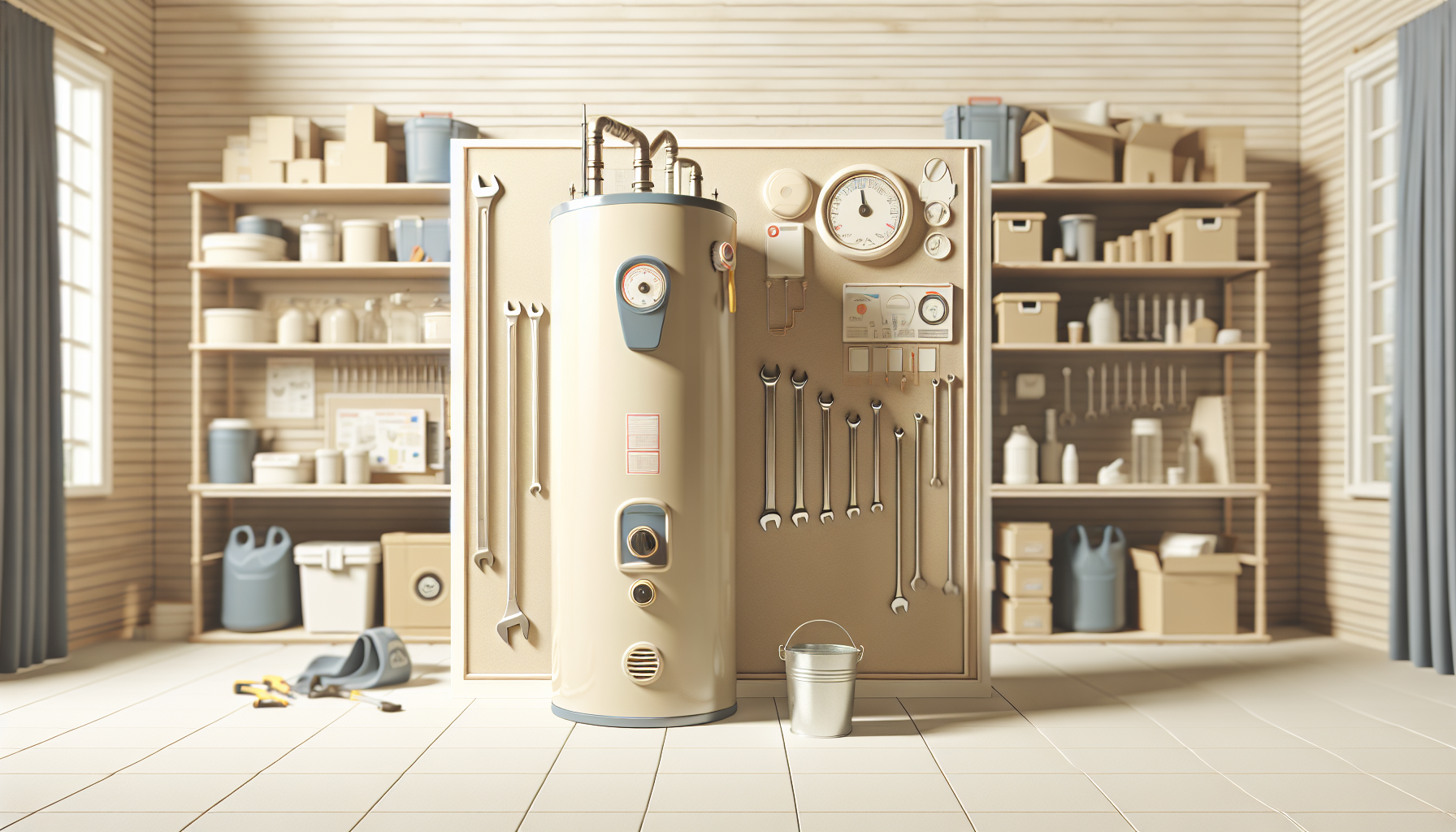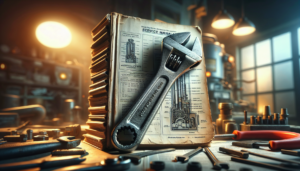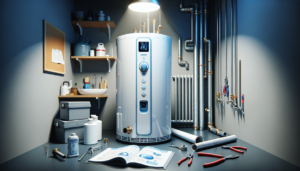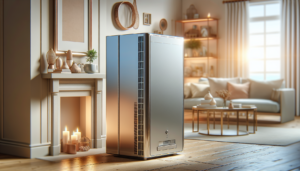What happens when you turn on the hot water tap? You expect warm water, right? But what if it doesn’t work? That’s where hot water heater maintenance comes in. It’s like taking care of a pet; you have to feed it, check on it, and make sure it’s healthy. Let’s talk about how you can be the best caretaker for your hot water heater.
Table of Contents
ToggleWhat is a Hot Water Heater?
A hot water heater is a machine that heats water for your home. It helps you to take warm showers, wash dishes, and do laundry. Without a hot water heater, daily tasks can get quite tricky!
Imagine getting into a shower that’s cold—it wouldn’t feel nice at all. Hot water heaters come in different types, like tankless, traditional, or solar. No matter what type you have, they all need some care to work well.
How Does a Hot Water Heater Work?
Your hot water heater works by heating water that then travels through pipes into your home. The heater burns fuel or uses electricity to heat the water. If you turn on your hot water tap, the heated water flows out, making your tasks easier.
Think of it as a big kettle that you use to boil water, but instead of making tea, it helps you with many daily activities. Just like any appliance, it needs to be checked to make sure it functions properly.
Why is Maintenance Important?
You might wonder why you should spend time on maintenance. Well, proper care keeps your hot water heater going and prevents problems. Here are some reasons why maintenance is important:
- More Efficiency: When your heater works well, it uses less energy, which can save you money.
- Longer Lifespan: Regular checks help your hot water heater last longer, which means you won’t have to replace it too soon.
- Fewer Breakdowns: A well-maintained heater is less likely to break down, giving you peace of mind.
It’s just like taking care of your bike. If you keep it clean and check the tires, you can ride it longer without any problems.
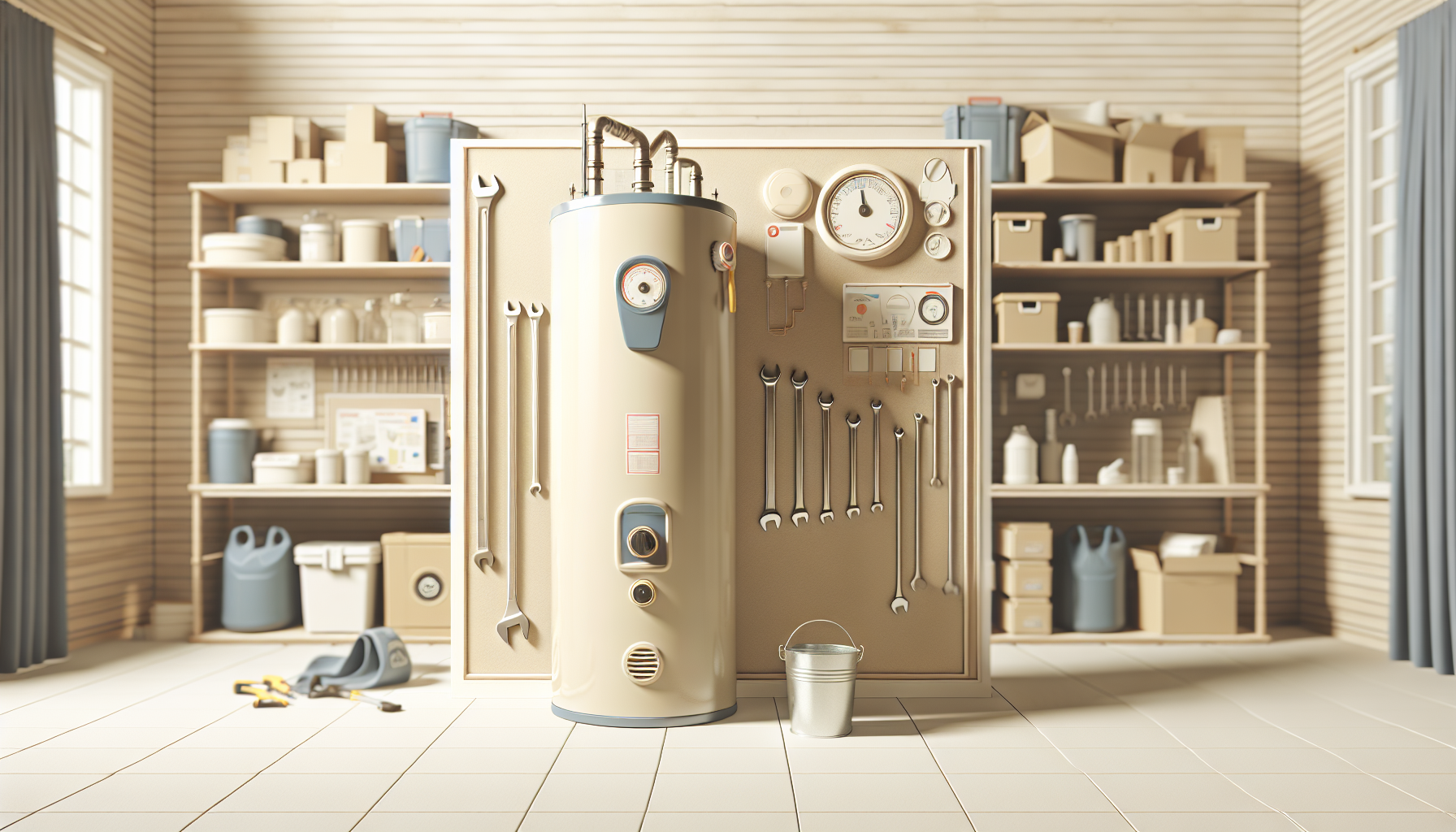
Tips for Hot Water Heater Maintenance
Now that you know why maintenance is important, let’s get into some simple tips you can follow.
1. Check the Temperature Setting
It’s essential to check the temperature setting on your hot water heater. Most experts recommend setting it to 120 degrees Fahrenheit. This temperature is hot enough for your needs but safe enough to prevent burns.
To adjust the temperature, you can find the dial on the heater. If you don’t feel comfortable adjusting it yourself, ask an adult for help.
2. Inspect the Anode Rod
The anode rod is a metal part inside your hot water heater that helps prevent rust. Over time, it wears out and needs to be replaced. If you see rust in your water or strange smells, it might be time to check the anode rod.
To inspect it:
- Turn off the water heater and all water supply.
- Remove the rod (you might need help from an adult).
- Look for signs of corrosion or wear and replace it if necessary.
A healthy anode rod means a happier hot water heater!
3. Flush the Tank
Flushing the tank is like giving your hot water heater a bath. Over time, minerals from the water can build up inside the tank, which will affect performance. Flushing helps remove these deposits.
To flush your hot water heater:
- Turn Off the Heater: Make sure it’s cool and safe.
- Connect a Hose: Attach a hose to the drain valve at the bottom.
- Drain the Tank: Open the valve and let the water flow out. Keep an eye on the water to see if it’s clear or if it has dirt and sediment.
- Close the Valve: When the water runs clear, close the valve, remove the hose, and refill the tank.
Flushing should be done at least once a year.
4. Check for Leaks
Leaks can cause big problems, so it’s important to check for them regularly. Look around the hot water heater for any wet spots or puddles. If you see anything suspicious:
- Turn Off the Water: Safety first!
- Call a Professional: It’s best for an expert to look at significant leaks. You want to keep everything clean and dry.
5. Insulate the Pipes
Insulating the pipes connected to your hot water heater can help keep the water warm. When the water stays warm, it doesn’t use as much energy. You can buy pipe insulation at any hardware store.
Simply wrap the insulation around the pipes and secure it. It’s a simple task, but it can help save on energy bills!
When to Call a Professional
Sometimes, even the best care isn’t enough. If you notice big problems like strange noises, leaks, or if the hot water heater doesn’t work at all, it’s time to call a professional.
Signs You Need a Professional
Here are some signs that should prompt you to call for help:
- No hot water or inconsistent hot water.
- Strange noises (like banging or popping).
- Water pooling around the heater.
- Rust or corrosion on the tank.
If you notice these signs, don’t hesitate to reach out to someone who knows how to fix hot water heaters.
Why Choose KadeCo Inc.?
If you need help with your hot water heater, KadeCo Inc. is a great choice! Located in Pensacola, Florida, KadeCo has technicians who know everything there is to know about hot water heaters.
KadeCo Inc. provides honest services and free quotes, giving you the best value for your money. They only fix what’s broken, so you don’t have to worry about extra costs.
If you’re feeling confused about your hot water heater or just want to make sure it’s in good shape, remember KadeCo Inc. can help! Their experienced technicians will ensure everything is running smoothly.
KadeCo Inc.
209 Brandywine Rd
Pensacola, FL 32507
(850) 516-7552
Protecting Your Hot Water Heater
Just like you wear a coat in the winter to stay warm, you should protect your hot water heater too. Here are some quick tips for keeping it safe and sound:
1. Keep it Dry
Make sure the area around your hot water heater stays dry. If you notice moisture, it could lead to rust.
2. Clear the Area
Keep the area around your heater clear of clutter. This will help ensure proper airflow and prevent any fire hazards.
3. Regularly Inspect
Set a reminder to check your hot water heater every few months. Look for leaks, rust, or anything odd. Early detection can save you money!
4. Maintain the Area’s Temperature
If it’s really cold outside, make sure the space where your heater is located doesn’t drop too low in temperature. This can prevent freezing and other temperature-related problems.
Understanding Different Types of Water Heaters
You might have noticed that there are many different kinds of hot water heaters. Each type has its benefits and uses. Let’s learn a bit about the common ones:
Traditional Tank Water Heaters
These are the most common types you’ll find in homes. They store hot water in a big tank until you need it. It’s ready to go whenever you turn on the faucet.
- Pros: Large capacity of hot water
- Cons: Takes up more space
Tankless Water Heaters
Tankless heaters heat water on demand. This means they don’t keep hot water in a tank; instead, they heat it right away when you tap into it.
- Pros: More energy-efficient and takes up less space
- Cons: May struggle with multiple hot water taps at once
Solar Water Heaters
These heaters use energy from the sun to heat water. They are great for energy savings if you live in a sunny area.
- Pros: Eco-friendly and reduces energy bills
- Cons: Higher initial cost and relies on good weather
Heat Pump Water Heaters
These heaters work like refrigerators, but in reverse. A heat pump pulls heat from the air or ground to heat the water.
- Pros: Extremely energy-efficient
- Cons: Requires a specific type of environment to work well
Whatever type you have, remember that every hot water heater needs care!
Seasonal Maintenance Tips
Let’s also chat about seasonal maintenance. Just like you change your clothes with the seasons, your water heater needs checking at different times too.
Summer Maintenance
In the summertime, water heaters can sometimes be overworked. Here’s what to remember:
- Check the Temp: Ensure that the temperature setting isn’t too high.
- Flush the Tank: It’s a good time to flush the tank to avoid buildup from all the warm showers and fun activities.
Winter Maintenance
During winter, keeping your water heater running is crucial:
- Insulate the Heater: Especially if it’s in a cold area, insulating can help.
- Check for Leaks: Cold temperatures can make pipes fragile. Look for any signs of leaks.
Conclusion
A hot water heater is a helpful companion in your home, but it needs your help to stay in good shape. By following these maintenance tips, you can make sure your water heater does its job well. Remember to check the temperature, flush the tank, and don’t ignore potential leaks.
When in doubt, KadeCo Inc. in Pensacola is always there to help you with any HVAC concerns you might have. With their honest service and experience, you can trust them to take good care of your hot water heater so that it works perfectly when you need it.
Remember, taking care of your hot water heater is just like caring for a pet. It needs love and attention to thrive. Enjoy your warm showers and remember to keep your hot water heater happy!


